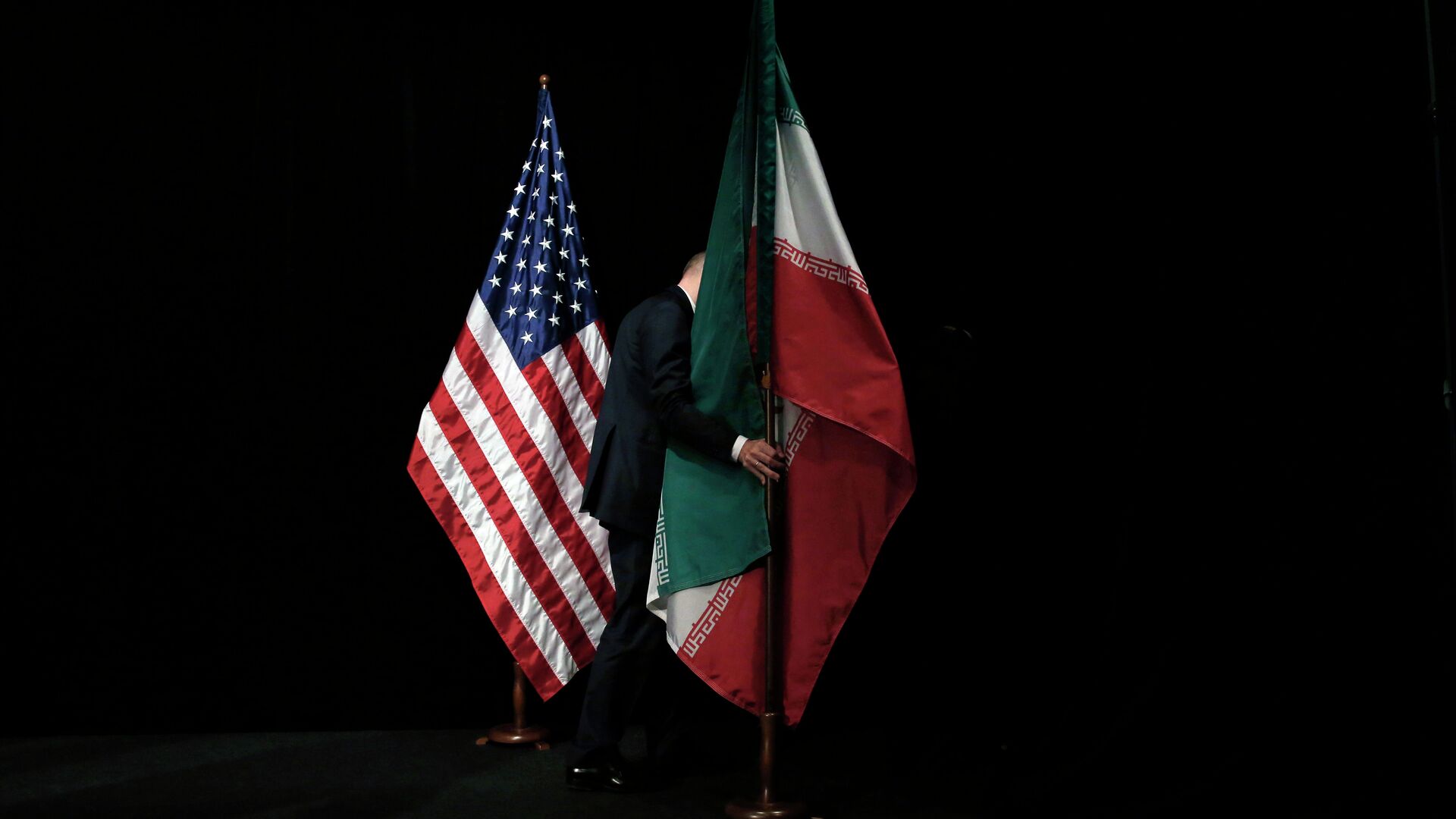State Department: US Prepared to Meet 'Directly' With Iran Amid Talks Standoff
19:17 GMT 24.01.2022 (Updated: 13:28 GMT 06.08.2022)

© AP Photo / Carlos Barria
Subscribe
Iranian diplomats met with P4+1 representatives in Vienna on Monday to review draft texts on guarantees and verification for the removal of US sanctions in the event the 2015 nuclear deal is revived.
"We are prepared to meet directly" with Iran to resolve talks on reviving the 2015 Joint Comprehensive Plan of Action (JCPOA), which has so far been negotiated by Eurasian partners on Washington's behalf, a US State Department spokesperson told Sputnik on Monday.
"We have long held the position that it would be more productive to engage with Iran directly, on both JCPOA negotiations and other issues. This extends to bilateral and multilateral formats," the spokesperson added.
Earlier on Monday, a Western diplomatic source told Reuters that Iran's negotiating team had recently made an appeal for direct talks.
"We've heard nothing to that effect. We'd welcome it," US Special Representative to Iran Robert Malley, who headed the US delegation that agreed to the 2015 deal, told Reuters in response to a question about the appeal.
"Reports saying that Iran and the US are directly negotiating with one another are untrue," Iranian Foreign Minister Hossein Amir-Abdollahian told reporters in Tehran earlier on Monday. "However, if we get to a stage where reaching a good deal with strong guarantees necessitates direct talks with the US, we will consider it."
The 2015 deal saw the US lower decades-old sanctions against Iran in exchange for Tehran accepting strict limitations on its nuclear program, including on the quality and quantity of refined uranium it could produce and store. However, in 2018, the administration of then-US President Donald Trump unilaterally pulled out of the deal, claiming Iran had been secretly violating it in pursuit of a nuclear weapon. Iran denied the accusations and the other partners to the deal were unconvinced by Washington's evidence, but they acquiesced to US demands to comply with new "maximum pressure" sanctions.
In response, Tehran began reducing its commitments to the deal, producing higher purities of refined uranium and storing more of it, while continuing to disavow nuclear weapons.
New talks on reviving the deal began in early 2021 after US President Joe Biden took office, but after seven rounds in Vienna, no new deal has yet been struck. However, several draft texts have been agreed upon thus far, with talks on more resuming in Vienna on Monday between Iran and the P4+1 nations - the UK, France, Germany, Russia and China - which are also party to the deal.
However, on Monday, Malley introduced a new condition for a final agreement that was totally unconnected to the nuclear deal: the freeing of four US citizens allegedly being held in Iranian custody.
"They're separate and we're pursuing both of them. But I will say it is very hard for us to imagine getting back into the nuclear deal while four innocent Americans are being held hostage by Iran," Malley told Reuters.
In response, Iranian Foreign Ministry spokesperson Saeed Khatibzadeh dismissed such a precondition, saying, “the negotiations are complicated enough. One should not further complicate them."
